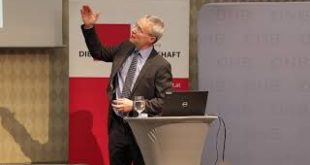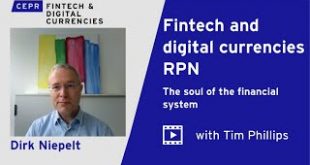Goodreads rating 3.81. For someone living in two dimensions and becoming aware of three, it might be easier to think of four than for someone living in three dimensions. The cherished feeling of oneness might be misleading … That Point is a Being like ourselves, but confined to the non-dimensional Gulf. He is himself his own World, his own Universe; of any other than himself he can form no conception; he knows not Length, nor Breadth, nor Height, for he has had no experience of them;...
Read More »Me Poor? Then We Need Less Redistribution
In the AEJ: Economic Policy, Christopher Hoy and Franziska Mager report that people are less supportive of redistribution when they learn that they are poorer than they thought. We test a key assumption underlying seminal theories about preferences for redistribution, which is that relatively poor people should be the most in favor of redistribution. … people who are told they are relatively poorer than they thought are less concerned about inequality and are not more supportive of...
Read More »CBDC and Cross-Border Payments
The Economist reports on “The race to redefine cross-border finance:” SWIFT recently launched SWIFT Go for retail payments. FinTech firms often partly bypass SWIFT by aggregating payments first. Ripple evades SWIFT, using a cryptocurrency for international transactions. Credit card companies build infrastructure independent of SWIFT for retail (push) payments initiated by the sender. JPMorgan Chase and a Singaporean bank and Temasek launched Partior for wholesale payments. This...
Read More »Moving On
After 12 years of service Dirk Niepelt resigns as the director of the Study Center to take up a post as Full Professor of Macroeconomics at the University of Bern. The Governing Board and Foundation Council thank him for the outstanding achievements of the centre under his leadership. He has played a major role in building up the Study Center Gerzensee as a place of learning and a venue for academic research and dialogue, in preparing it to meet future challenges, and in bolstering...
Read More »WEIS[S]E WIRTSCHAFT – Digitales Geld — staatlich oder privat?
Keynote Univ.-Prof. Dr. Dirk Niepelt zum Thema: CBDC — makroökonomische oder politische Risiken? WEIS[S]ER SALON, 13.09.2021
Read More »World Bank Staff Boosted China and Saudi Arabia Rankings
The FT (and many other outlets) summarize a report by law firm WilmerHale which was commissioned by the World Bank: … in the 2018 edition of Doing Business, China’s overall ranking had been artificially held at 78 — the same as in the previous year — as a result of late changes that elevated its position from 85. The report alleges that Georgieva led efforts to improve China’s ranking at a time when she was “engrossed” in a campaign to secure a capital increase for the World Bank. …...
Read More »Fintech and digital currencies RPN. The soul of the financial system
The research policy network on Fintech and Digital Currencies has an ever-expanding list of issues for its researchers. Dirk Niepelt of the University of Bern, RPN director, explains what's top of the agenda for central banks and policymakers, and how the RPN can influence their decisions.
Read More »Doves and Hawks at the ECB
In the FAZ, Christian Siedenbiedel discusses a ZEW study on the positions of ECB board members and how they relate to national debt levels. Es gibt klare Fraktionen von „Falken“ und „Tauben“ im Rat, und es gibt eine gewisse Korrelation zur Höhe der Staatsschulden im jeweiligen Heimatland des Ratsmitglieds. Als „Tauben“ wurden nach der Daten-Auswertung die Ratsmitglieder Ignazio Visco (Italien), Pablo Hernández de Cos (Spanien), François Villeroy de Galhau (Frankreich), Giannis...
Read More »Income Tax Burdens in Switzerland
In the NZZ, Hansueli Schöchli summarizes recent evidence. Wer in der Schweiz im Jahr 2017 wie viel Einkommenssteuer bezahlte Anteil Steuerpflichtige (in Prozent) Anzahl Steuerpflichtige Minimales Reineinkommen in Fr. Durchschnittliche Steuerbelastung (in %) Anteil der Einkommenssteuer Bund/Kanton/Gemeinde (in %) 0,01 515 4 548 020 43,8 4,82 0,1 5 150 1 109 760 37,3 9,89 1 51 498 331 731 34,4 24,04 5 257 489 152 799 28,1 42,55 10 514 978 111 403 24,6 53,03 25 1 287 444 73 769...
Read More »“Macroeconomics II,” Bern, Fall 2021
MA course at the University of Bern. Time: Wed 10-12. Location: A-126 UniS. Course assistant: Stefano Corbellini. The course introduces Master students to modern macroeconomic theory. Building on the analysis of the consumption-saving tradeoff and on concepts from general equilibrium theory, the course covers workhorse general equilibrium models of modern macroeconomics, including the representative agent framework, the overlapping generations model, and the Lucas tree model....
Read More » Dirk Niepelt
Dirk Niepelt


